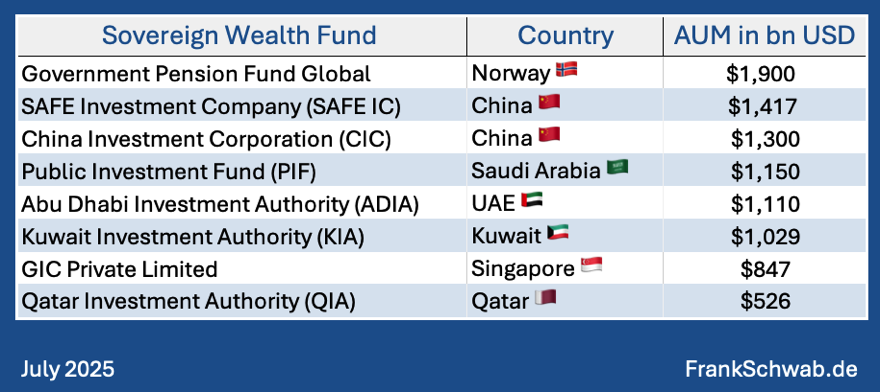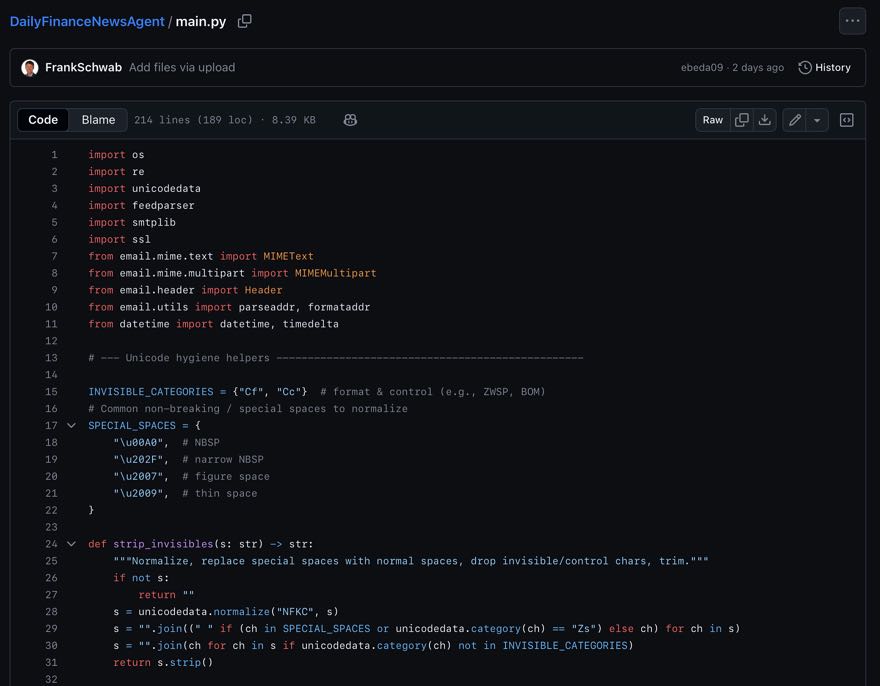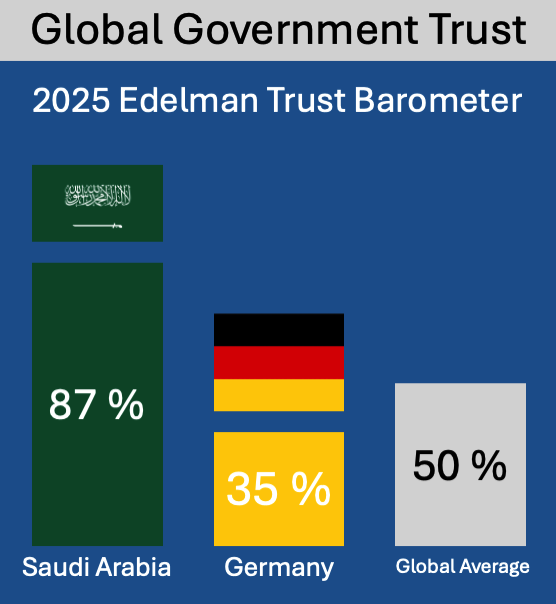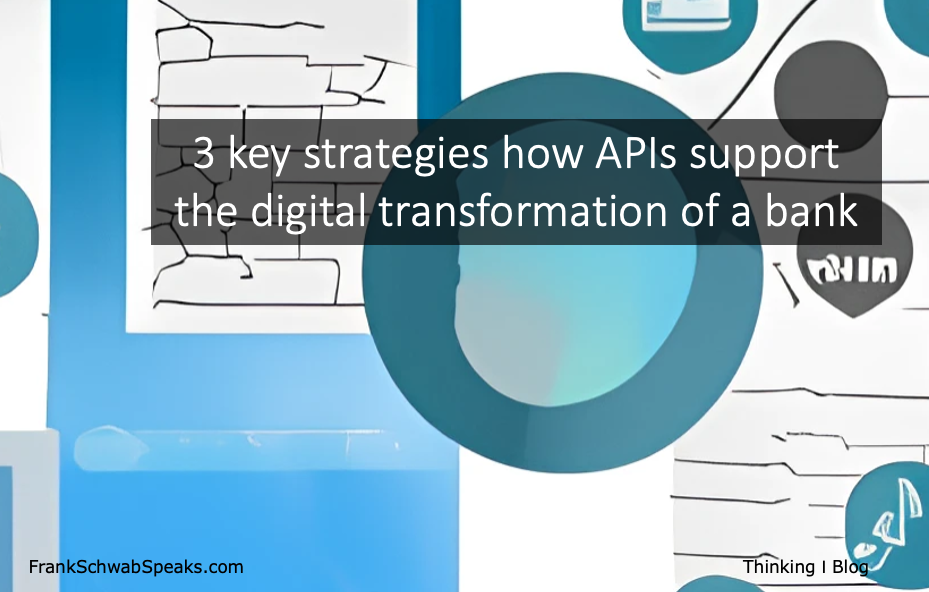Mashreq Bank's Digital Transformation Journey
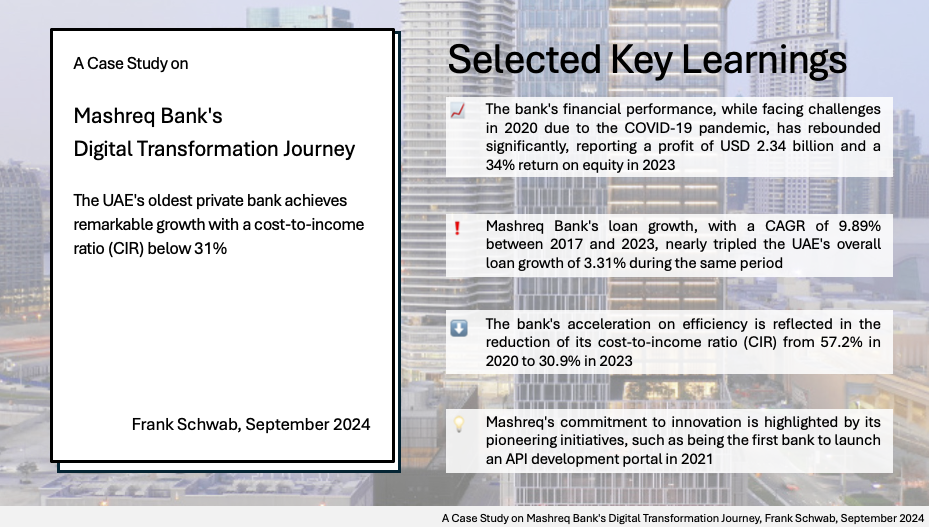

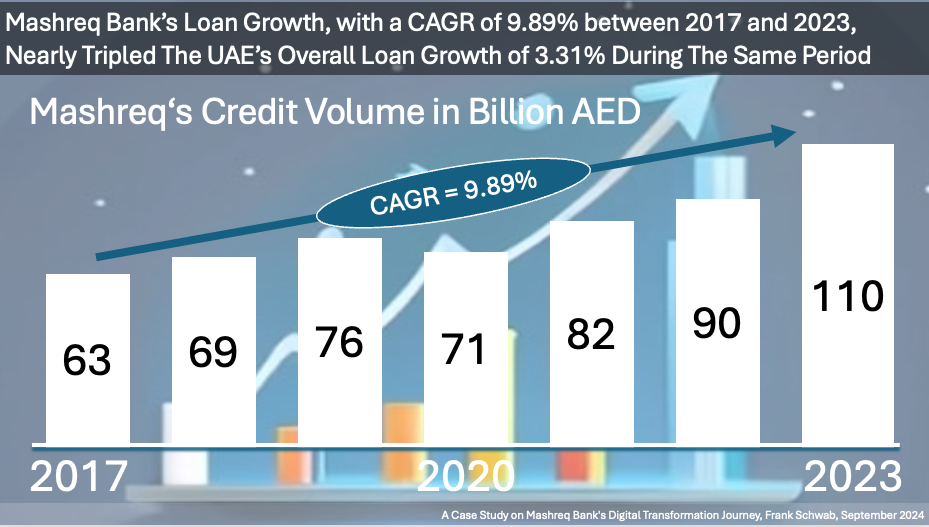
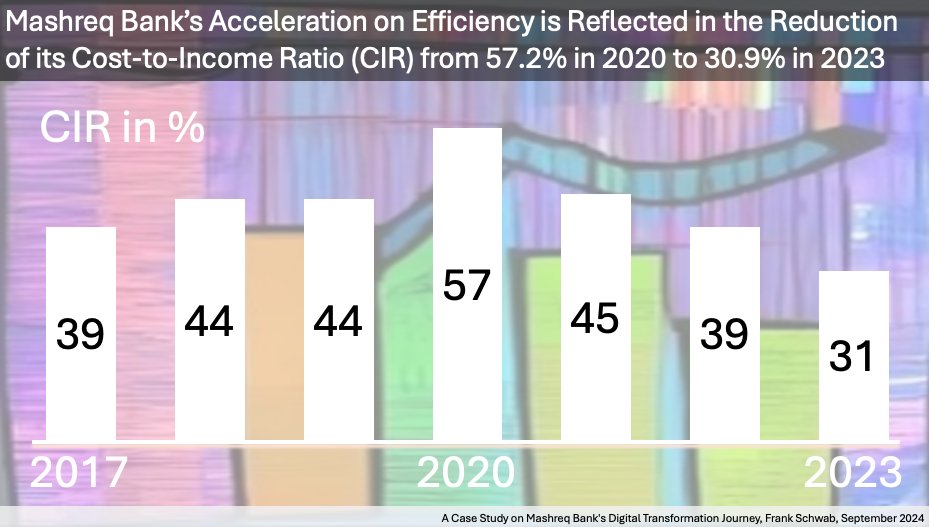
The cost-to-income ratio also saw a significant reduction from 57.2% in 2020 to 30.9% in 2023, highlighting the bank's focus on efficiency.
The implementation of Flexcube, the launch of Mashreq Neo and NeoBiz, and the strategic use of AI and ML have significantly enhanced customer experience and operational efficiency.
The bank's strategic partnerships, such as its collaboration with Federal Bank for the first digital NRI account, further demonstrate its commitment to innovation and expanding its service offerings.
Mashreq's dedication to customer-centricity is evident in its rapid account opening and loan approval processes, taking only 2 minutes and 5-10 minutes, respectively.
Mashreq Bank has strategically invested in a range of IT software solutions to drive its digital transformation and enhance its banking operations.
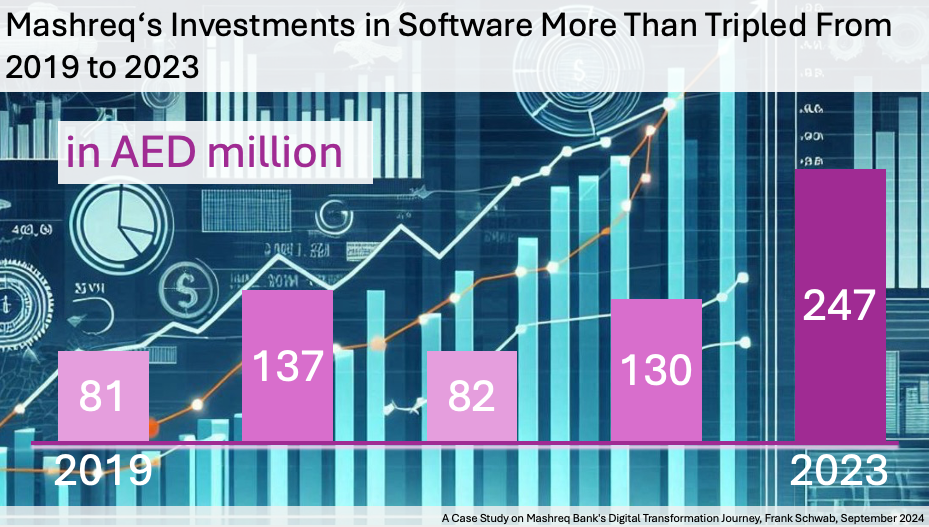
The bank's focus on emotional connectivity with customers, particularly through platforms like Neo NXT, highlights the importance of creating meaningful and engaging banking experiences.
Mashreq's commitment to innovation is further evident in its pioneering initiatives, such as being the first bank to launch an API development portal in 2021, fostering open banking and digital collaboration.
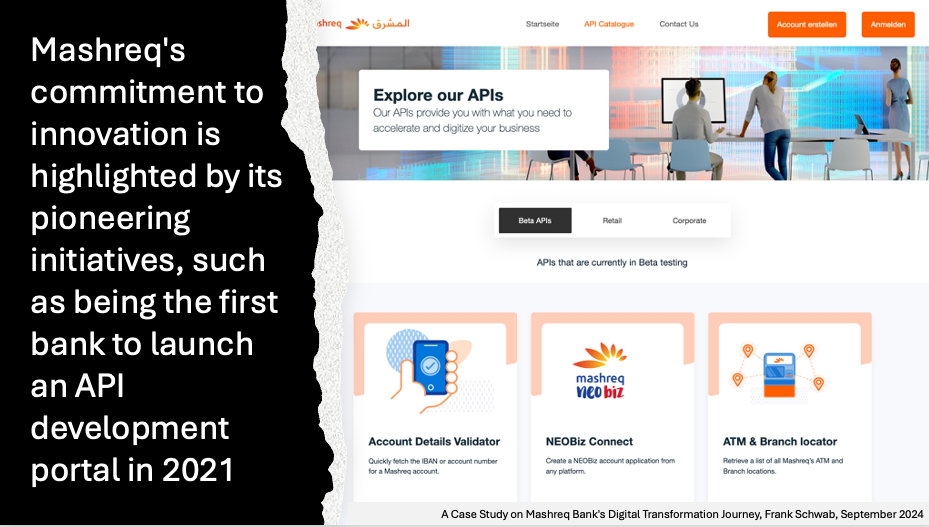
Mashreq's digital transformation journey serves as a role model to the transformative power of digitalization in the banking sector. By embracing innovation, prioritizing customer experience, and forming strategic partnerships, Mashreq has not only achieved remarkable growth but also set a benchmark for the industry, demonstrating how traditional banks can thrive in the digital age.
✍️ Contact me to learn more about the in-depth case study and receive the comprehensive 25+ page report, featuring detailed analysis and multiple informative graphs.
Published in CaseStudies, DigitalTransformation, banking, DigitalJourney, API, all on 03.09.2024 7:30 Uhr.


